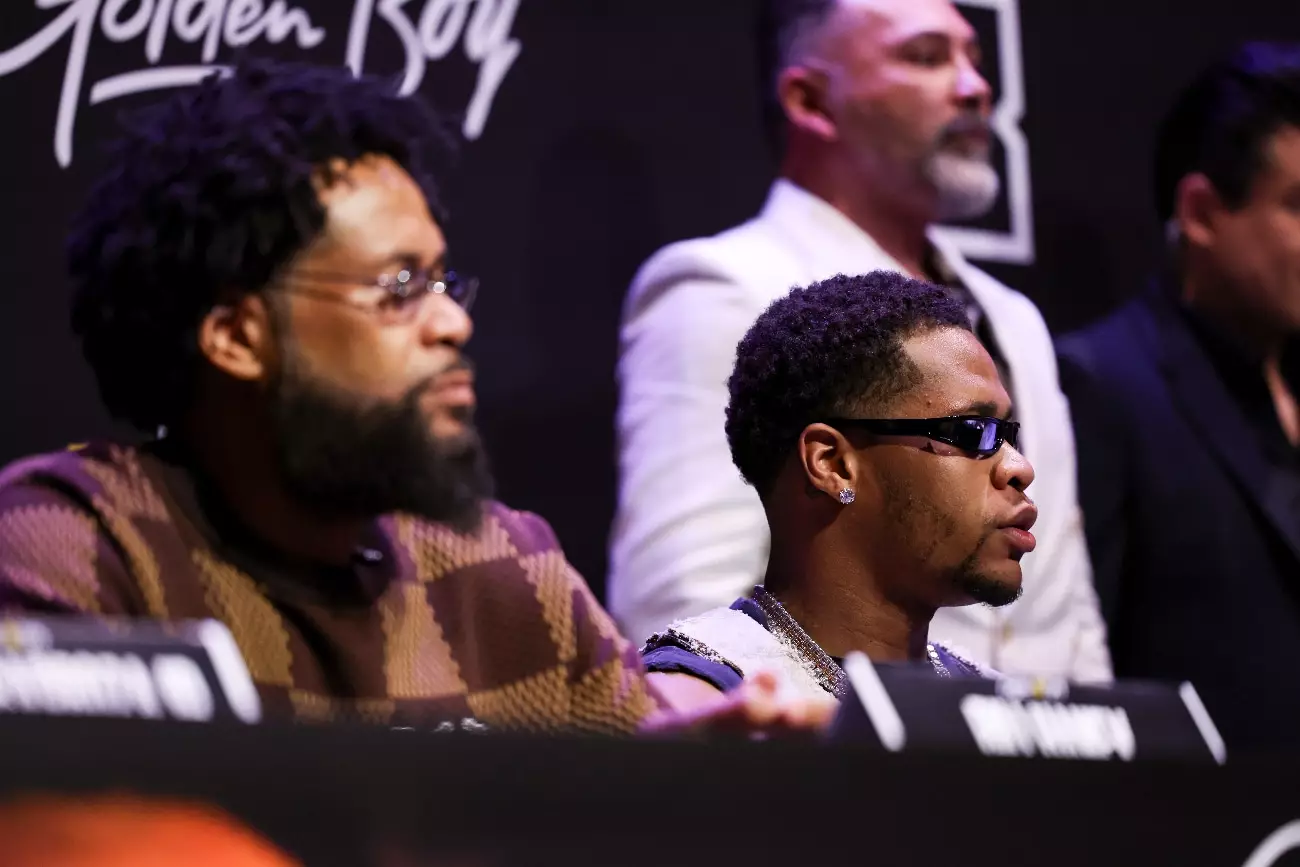In a recent social media outburst, Bill Haney, father and trainer of boxer Devin Haney, expressed admiration for Jake Paul, a YouTuber turned professional boxer who has gained immense popularity and a significant following. This sentiment raises important questions about the future of boxing and the metrics through which success and relevance are measured within the sport. Given the uncertainties surrounding Devin Haney’s career following his loss to Ryan Garcia, it appears that Bill Haney is considering a strategic pivot towards a new model of boxing entertainment—one where financial success trumps traditional accolades of legacy and skill.
Bill Haney’s praise for Jake Paul as the “face of boxing” signifies a seismic shift in how the sport is viewed in contemporary culture. Paul has built a brand that goes beyond traditional boxing narratives, attracting a younger audience that is perhaps more enthused by spectacle than by the technical prowess of fighters. Such a statement prompts us to reflect on what constitutes the “face of boxing.” Is it the fighter who has the most accolades and skill set, or is it someone who draws massive viewership and generates significant revenue? In Bill Haney’s perspective, the answer leans toward the latter.
The loss against Ryan Garcia has left Devin Haney at a crossroads. Bill hinting at the potential for a shift towards matchups with old MMA fighters or retired champions illustrates a potential path for his son’s career. The allure of these types of matchups, much like Jake Paul’s foray into boxing, emphasizes entertainment and marketability over traditional competition. While the prospect of fighting well-known names like Conor McGregor, Oscar De La Hoya, or even a 58-year-old Mike Tyson may yield financial gain, one must wonder about the implications for Haney’s reputation as a boxer. Profit at the expense of credibility could ultimately affect long-term legacy.
Bill Haney made a distinction between being the “heartbeat” of boxing versus its “face,” attributing each title to Devin and Jake, respectively. His argument presents an interesting dichotomy—where legacy is tied to accomplishments in the ring, while the role of the face correlates with financial achievements and market influence. This is a dilemma that many athletes in the sport face; do they prioritize their traditional pathways to success, or do they adapt in order to remain relevant in an evolving landscape?
When looking at potential future matchups for Devin Haney, the optimism seems fleeting; his chances against current champions like Terence Crawford, Shakur Stevenson, or even Gervonta Davis look grim. If traditional routes of boxing income seem bleak, one must consider whether emulating Jake Paul’s model could, ironically, provide a renaissance of sorts for his career. However, does trading competitive integrity for visibility strip a fighter of their dignity and respect within the sport?
Bill’s commentary suggests a growing trend towards events that prioritize spectacle over skill. He noted Jake Paul’s impressive net worth, which presents a compelling case for the monetization of boxing through “YouTuber circus” types of matches. The idea is not entirely new; many sports have adapted to keep pace with audience preferences, yet boxing historically held fast to rigorous competitive standards. Bill proposes that if financial success is the goal, undertaking the same path that Jake Paul has walked could be a viable option.
Nevertheless, there’s a cautionary tale layered within this suggestion. The hustle that Bill admires in Jake Paul may very well lead to a superficial rather than substantive form of entertainment. Boxing is a historically cherished sport with deep roots in competition and athletic prowess. To abandon those principles in favor of theatricality could ultimately undermine everything that loyal boxing fans hold dear.
The discussion initiated by Bill Haney opens complex dialogues about the future of boxing as both an art and a business. The sport is at a crossroads where fighters like Devin Haney must evaluate their paths and perhaps redefine what success means in an era captivated by viral fame and instant monetization. If ever there was a moment for reflection, it is now, as a new generation of boxing fans is shaped by the allure of entertainment over tradition.

